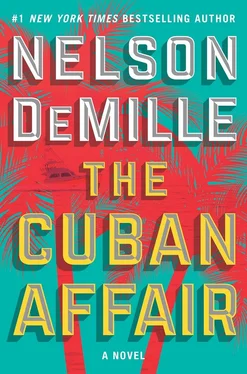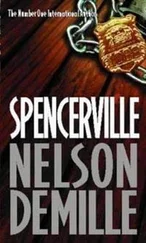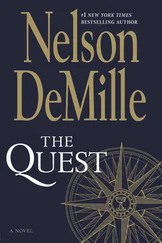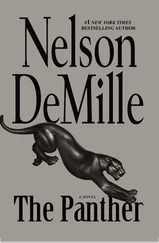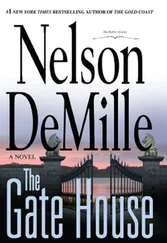I had intended to sail The Maine to Portland in September to explore that possibility, but I didn’t. So now I was thinking about calling my father to talk about that. But like most down Easters, my father was a man of few words. If I’d gotten killed overseas and he had to put my obit in the Portland Press Herald at twenty dollars a word he’d be Yankee frugal and Maine taciturn and just say: Daniel MacCormick died. If it had to be a six-word minimum he’d show his practical side and add: Car for sale.
Well, maybe I’m being hard on the old man. He was proud of me when I joined the Army, and before my second deployment to Afghanistan he advised, “Come back.” Well, I did, and he seemed pleased about that, but a bit concerned about my physical injuries, though not so much about post-traumatic stress, which he doesn’t believe in. He liked to say he came back from Vietnam the same as when he left, which, according to my mother, is unfortunately true.
Regarding war, the MacCormicks have fought for their country since they arrived in the New World in the early 1700s, killing Indians, Frenchmen, Brits, Confederates, Germans, Japanese, and assorted Commies without regard to race, religion, or ethnic background. My older brother Web fought in the second Iraq war, so we also have dead Arabs on the family hit list, and I knocked off a few Afghanis to ensure true diversity. But if you met my family or knew my ancestors, I’m sure you’d think they were all fine, peaceful people. And we are. But we’ve always done our duty to God and country, which sometimes means somebody has to die.
After I killed my first Taliban, the men in my company gave me a T-shirt that said: “The Road To Paradise Begins With Me.” Jack loved that shirt so I gave it to him. He has an interesting collection.
My father, Webster senior, is a weekend sailor and a weekday certified financial planner, very risk averse with his clients’ money and tight as a crab’s ass with his own. I’d love to sail home with a few million in the bank and flip the old man half a million to invest for me. My mother, June, a Bedell, is a third-grade teacher at a private elementary school, though she doesn’t particularly like children, including maybe her own. Most of the MacCormicks and Bedells are college grads and according to my father the youngsters have all been educated beyond their intelligence. He may be right.
Like a lot of New Englanders, my family’s politics are a mixture of progressive and conservative. We believe in taking care of the less fortunate, but we don’t want that to cost us money. As for me, I am apolitical, and as for Yankee frugality, I missed that class. If I had, for instance, two million dollars I’d buy drinks for the house at the Green Parrot and take Amber on a long cruise. My financial advisor is Jack Colby, who likes to say, “I spent most of my money on booze and broads and I wasted the rest of it.”
Well, I guess it goes without saying that Portland and Key West, though connected by the same ocean and the same road, are different places. And it also goes without saying that unlike my father, I am not the same man I was when I left home. But we are all One Human Family, fishing for peace. Meanwhile, I’d listen to what Carlos and his clients had to say about fishing for money. Costs nothing to listen. Better yet, I was getting paid for it.
I came to the end of the dock where The Maine was tied. The bank and I own a beautiful 42-foot Wesmac Sport Fisherman, built in 2001 by Farrin’s Boatshop in Walpole, Maine. The original owner had custom outfitted the boat with a tuna tower, a hydraulic bandit reel, two fighting chairs, and other expensive boy toys. The Maine is powered by a Cat 800-horsepower diesel, and even with the tuna tower and other commercial extras she cruises at about twenty-five knots, which gets her out to the usual fishing spots quickly.
If Cuba was in her future and mine, she could make Havana in under five hours, burning thirty gallons of diesel an hour, which was about a quarter of her six-hundred-gallon fuel capacity. She’d burn about three hundred gallons getting to Cayo Guillermo, then an unknown amount of fuel for the six-day tournament, so she’d have to take on fuel before heading back to Key West. But to keep her light and fast, only enough fuel to get us home. And how much does sixty million dollars weigh?
But why was I doing that math? Well, because I was thinking that you shouldn’t turn down two million dollars before you’ve heard the deal.
I jumped aboard and saw that Jack wasn’t back yet with the rum and Coke.
I went below to the galley and got myself a bottled water from the fridge. The galley and cabin seemed shipshape and I used the head, which looked like it could pass an inspection from the Cuban lady. Jack is, if nothing else, neat and clean, a holdover from his Army days.
The Maine has a wide beam — 16 feet — so there’s room below for two decent-sized staterooms that sleep four, as I told Carlos, though a ten-day sail with provisions onboard could be a bit tight. And where was I going to stow sixty million dollars? I guess that depended on the denomination of the bills and how much room they took up. I’m sure we’d figure it out. Or, better yet, I’d just tell Carlos, “You need a bigger boat. Find someone else.”
I went into the cabin and checked out the electronics, which had all been updated about a year ago at great expense. To stay competitive in this game you needed the best and the latest in chart plotters, radios, radar, sounder boxes, and all that. Plus I had a flat-screen TV in the cabin, a DVD player, stereo, and four new speakers. I don’t even have that stuff in my crappy house.
I bought this boat — formerly named the Idyll Hour — from a rich guy from Long Island named Ragnar Knutsen, who had discovered that a pleasure boat was not always a pleasure. He’d sailed to Key West with his buddies for a fishing trip four years ago, then put a FOR SALE sign on his boat at Schooner Wharf. Someone at the Parrot knew I was looking and told me to check it out. I did, and made a deal with Ragnar for three hundred thousand, though the boat, new, had cost him about twice that — which should have been my first clue that I was buying a bottomless money pit. But I already knew that from growing up in Maine.
I also knew, as did Ragnar Knutsen, that the two happiest days of a man’s life are the day he buys a boat and the day he sells it. Ragnar, though, hid his happiness and told me he was practically giving me the Idyll Hour in thanks for my service to the country.
My father, of course, thought I was making a bad investment, a bad career choice, and an immature decision. I knew he was right, so I went ahead with the deal.
The bank liked the deal more than my father did, and for fifty thousand down — my Army separation pay and savings — I was able to sign a quarter-million-dollar note, and rechristen the boat as The Maine . With luck, I could get two-fifty for it, pay off the loan, and get a job back on Wall Street. Or I could go home and live on my disability pay. Or, holy shit, learn the financial planning business. Or, better yet, go back to school for a graduate degree in something. Never too old to waste time in school. I went to Bowdoin, as I said, the oldest college in Maine and one of the oldest in the country. When I was there, it was ranked the fourth best liberal arts college in the nation, but more importantly the second best drinking college. We got beat by Dartmouth, though I don’t know why. I did my part.
Anyway, grad school was also an option, and the Army — as a way of saying sorry about that Taliban RPG that almost blew your balls off — would pick up some of the tab.
Читать дальше
